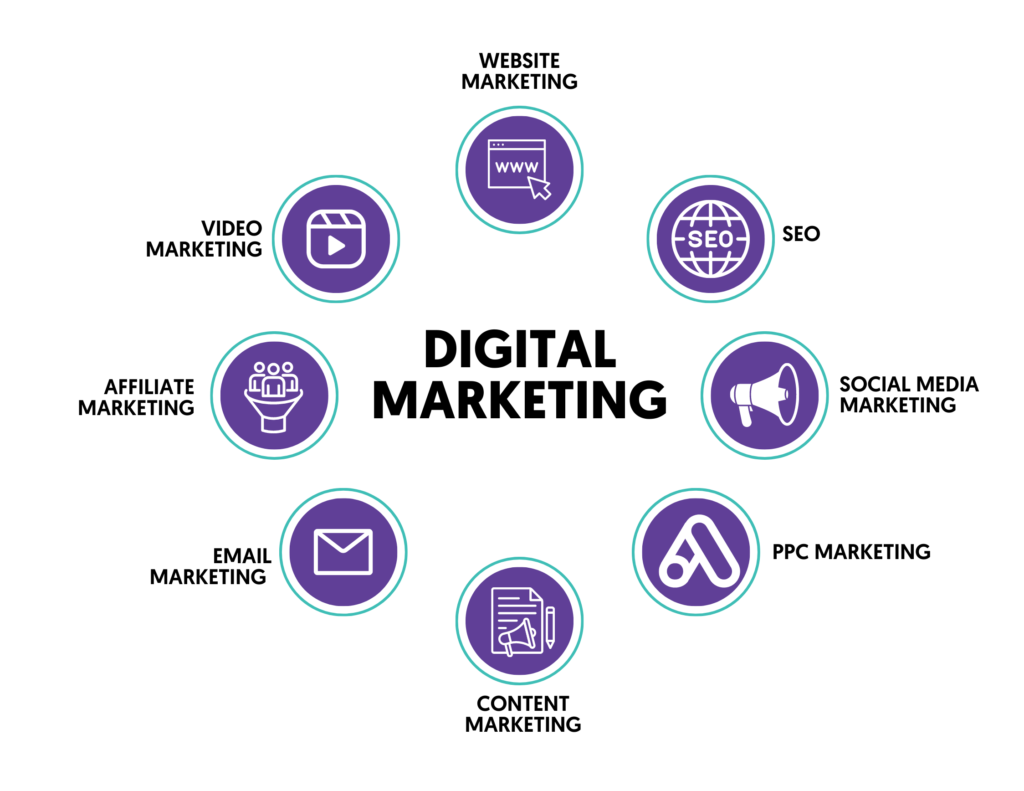Digital marketing has revolutionised the way businesses interact with their customers. With its wide-reaching capabilities, precise targeting, and cost-effectiveness, it provides opportunities for both small and large companies to thrive in the digital age. Embracing the dynamic world of digital marketing is no longer optional—it’s essential for staying competitive in the ever-evolving business landscape.

Digital Marketing
Digital marketing refers to the use of online platforms, tools, and strategies to promote products or services. Unlike traditional marketing, which involves physical advertising methods such as billboards, TV, or print, digital marketing relies on the internet and digital technologies, reaching consumers on their laptops, smartphones, and other digital devices.
In the modern era, digital marketing has become essential for businesses of all sizes due to its broad reach, cost-effectiveness, and the ability to target specific audiences with precision. With over 5 billion internet users worldwide, companies can now reach customers globally with just a click.

Types of Digital Marketing
Digital marketing is not a one-size-fits-all approach. It includes various types that cater to different business needs. Some of the most effective forms include:
Search Engine Optimisation (SEO): SEO is the practice of optimising websites to rank higher on search engine results pages (SERPs), increasing organic (non-paid) traffic. By using specific keywords and quality content, businesses can appear at the top when potential customers search for relevant products or services.
Content Marketing: Content marketing involves creating and sharing valuable, relevant content to attract and engage an audience. This includes blog posts, videos, podcasts, info graphics, and eBooks, which not only build brand awareness but also establish a business as an industry leader.
Social Media Marketing: Platforms like Facebook, Instagram, Twitter, LinkedIn, and TikTok are powerful tools for businesses to engage with their audience, share updates, promote products, and build a loyal customer base. Social media allows for both organic reach and paid advertising through targeted ads.
Email Marketing: Email marketing is one of the most direct forms of communication with customers. By sending personalised emails, businesses can nurture leads, retain customers, and increase sales through tailored campaigns and newsletters.
Pay-Per-Click Advertising (PPC): PPC advertising allows businesses to place ads in front of potential customers via platforms like Google Ads. Advertisers pay each time someone clicks on their ad, making it a cost-effective way to drive traffic and conversions.
Affiliate Marketing: In affiliate marketing, businesses collaborate with influences or third-party websites to promote their products or services. In return, the affiliate earns a commission for every sale or lead generated through their marketing efforts.
Influence Marketing: With the rise of social media, influence marketing has gained traction as a form of digital marketing. By partnering with influences who have a significant online following, businesses can tap into new audiences and build credibility through trusted recommendations.